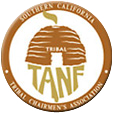The competition will make up to 16 awards of $75,000 to organizations across the nation to assist in
delivering entrepreneurial training and microloan assistance to formerly incarcerated individuals.
PRESS OFFICE
|
Release Date: December 29, 2016
|
Contact: Cecelia Taylor (202) 401-3059
|
|
Release Number: 16-90
|
Internet Address: http://www.sba.gov/news
|
SBA to Launch $1.2 Million Aspire Challenge for Entrepreneurship
Training and Microloans to Help Previously Incarcerated Citizens
WASHINGTON, D.C. – The U.S. Small Business Administration (SBA) today announced the
Aspire Challenge, a prize competition of up to $1.2 million to expand access to entrepreneurial
education and microloans for formerly incarcerated individuals. The competition will make up to
16 awards of $75,000 to organizations across the nation to assist in delivering entrepreneurial
training and microloan assistance to formerly incarcerated individuals.
Aspire Challenge, a prize competition of up to $1.2 million to expand access to entrepreneurial
education and microloans for formerly incarcerated individuals. The competition will make up to
16 awards of $75,000 to organizations across the nation to assist in delivering entrepreneurial
training and microloan assistance to formerly incarcerated individuals.
“Entrepreneurship and small business ownership are proven paths toward wealth creation and
financial independence, especially for people who might otherwise feel trapped by their
circumstances,” said Tameka Montgomery, Associate Administrator for the SBA’s Office
of Entrepreneurial Development. “Entrepreneurship can even be a ladder of opportunity for
citizens who have served their debt to society but are struggling to find employment after
incarceration. With the training and startup tools provided through this competition, these citizens
can finally start to rebuild their lives and build relationships with their families and communities.”
The Aspire Challenge will build on the momentum of the Aspire Entrepreneurship Initiative, a
public-private partnership announced in August 2016 between the SBA, W.K. Kellogg Foundation,
and microlender Justine PETERSEN. The pilot initiative connects formerly incarcerated
individuals to entrepreneurial training, education and microloans, with a specific focus on those
who are parents. The pilot was rolled out in Detroit, Mich., Chicago, Ill., Louisville, Ky. and
St. Louis, Mo.
public-private partnership announced in August 2016 between the SBA, W.K. Kellogg Foundation,
and microlender Justine PETERSEN. The pilot initiative connects formerly incarcerated
individuals to entrepreneurial training, education and microloans, with a specific focus on those
who are parents. The pilot was rolled out in Detroit, Mich., Chicago, Ill., Louisville, Ky. and
St. Louis, Mo.
With approximately 60% of formerly incarcerated individuals remaining unemployed one year after
release, self-employment must be seen as a viable alternative. The Aspire Challenge will leverage
entrepreneurship as a tool to increase economic mobility for returning citizens through intensive
entrepreneurial training and counseling and increased access to micro-loans. The competition will
award prizes to entrepreneurial support organizations that propose innovative solutions to equipping
returning citizens with the tools they need to succeed in entrepreneurship. Components by which the
submissions will be assessed include recruitment methods, education/training delivery, provision of
mentoring services, community connections and ways in which participants will be connected to
access to capital and financial literacy.
release, self-employment must be seen as a viable alternative. The Aspire Challenge will leverage
entrepreneurship as a tool to increase economic mobility for returning citizens through intensive
entrepreneurial training and counseling and increased access to micro-loans. The competition will
award prizes to entrepreneurial support organizations that propose innovative solutions to equipping
returning citizens with the tools they need to succeed in entrepreneurship. Components by which the
submissions will be assessed include recruitment methods, education/training delivery, provision of
mentoring services, community connections and ways in which participants will be connected to
access to capital and financial literacy.
The SBA will award the prizes to organizations through the online competition platform,
www.challenge.gov. The competition is open to all for-profit and non-profit entities and
organizations, and they must have an account in the System for Award Management (SAM).
The submission period opens December 29, 2016 and will end on February 12, 2017.
The SBA anticipates that winners will be announced no later than March 14, 2017.
www.challenge.gov. The competition is open to all for-profit and non-profit entities and
organizations, and they must have an account in the System for Award Management (SAM).
The submission period opens December 29, 2016 and will end on February 12, 2017.
The SBA anticipates that winners will be announced no later than March 14, 2017.
Background
Approximately 60% of formerly incarcerated individuals remain unemployed one year after
their release, raising the risk of recidivism and resulting in lost lifetime earnings. This cycle has
major implications for American families as
nearly half of all U.S. children have at least one parent with a criminal record.
In 2015, SBA expanded its Microloan Program to small business owners currently on probation
or parole. The Aspire Entrepreneurship Initiative and the Aspire Challenge expand on policy
changes to give formerly incarcerated individuals the opportunity to generate income and create
economic prosperity for their families.
their release, raising the risk of recidivism and resulting in lost lifetime earnings. This cycle has
major implications for American families as
nearly half of all U.S. children have at least one parent with a criminal record.
In 2015, SBA expanded its Microloan Program to small business owners currently on probation
or parole. The Aspire Entrepreneurship Initiative and the Aspire Challenge expand on policy
changes to give formerly incarcerated individuals the opportunity to generate income and create
economic prosperity for their families.
###
ABOUT THE U.S. SMALL BUSINESS ADMINISTRATION (SBA)
The U.S. Small Business Administration (SBA) was created in 1953 and since January 13, 2012
has served as a U.S. Cabinet-level agency of the Federal Government to aid, counsel, assist and
protect the interests of small business concerns, to preserve free competitive enterprise and to
maintain and strengthen the overall economy of our nation. The SBA helps Americans start, build,
and grow businesses. Through an extensive network of field offices and partnerships with public
and private organizations, the SBA delivers its services to people throughout the United States,
Puerto Rico, the U.S. Virgin Islands and Guam. www.sba.gov
has served as a U.S. Cabinet-level agency of the Federal Government to aid, counsel, assist and
protect the interests of small business concerns, to preserve free competitive enterprise and to
maintain and strengthen the overall economy of our nation. The SBA helps Americans start, build,
and grow businesses. Through an extensive network of field offices and partnerships with public
and private organizations, the SBA delivers its services to people throughout the United States,
Puerto Rico, the U.S. Virgin Islands and Guam. www.sba.gov






